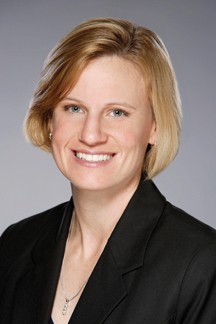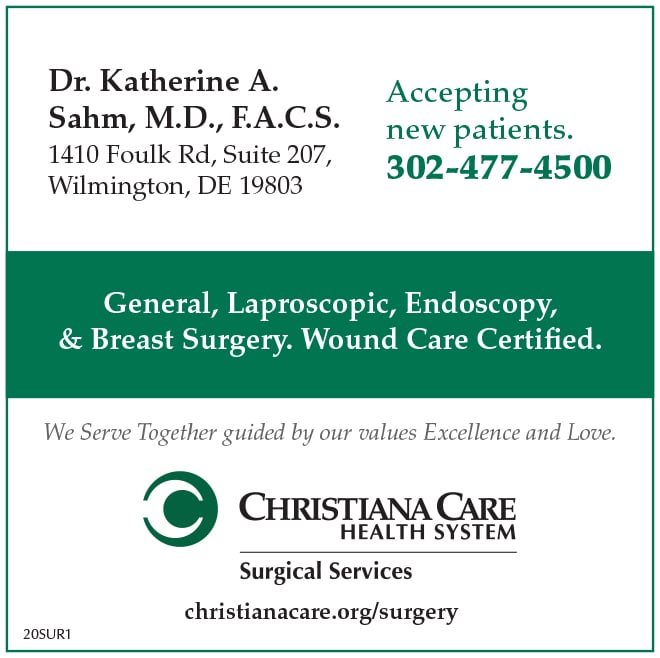Breast Cancer Screening Information Guidelines and Possible Testing

By Dr. Katherine A. Sahm, M.D., F.A.C.S.
As a breast surgeon and someone who has treated many breast cancer patients, I am often asked by both my patients and friends, “Should my daughters have breast examinations since I or another family member had breast cancer.” They are all very good questions and worth understanding to have the necessary information to ensure proper care of all family members.
Breast Cancer Screening
What is it?
How often should you be screened?
What tests should you have?
Breast cancer screening is regular breast examinations recommended by doctors to detect breast cancer before symptoms develop. The main purpose of breast screening is to find cancer at its earliest and most treatable stage.
According to American Cancer Society data, “Studies have shown that regular annual mammography screening of women with no symptoms of breast cancer has lowered the number of women who die from the disease by about 30%.”
Women at Average Risk
- Screening Guidelines recommend women between the ages of 25 to 40 should have an annual clinical breast examination.
- Women 40 and older should have an annual mammogram in addition to an annual clinical breast examination.
- Ultrasound may be recommended if you have what is considered dense breast tissue.
- Everyone should do a monthly self-breast examination beginning at age 20 and become familiar with their breasts so they are able to better notice changes throughout their adult life. You can learn to do a proper breast examination by asking your primary care physician or OB-GYN. Videos are available on-line by reputable sources.
*Keep in mind that you are at average risk for breast cancer if you have none of the following
- No history of invasive breast cancer
- No history of ductal or lobular carcinoma in situ (abnormal cells that are confined to the milk duct, or lobule)
- No family history of breast cancer in a first-degree relative (parent, sibling, or child)
- No evidence of a hereditary syndrome such as a BRACA mutation (evidence would be multiple first and/or second-degree relatives with breast cancer or ovarian cancer)
Above-Average Breast Cancer Risk
- Family history of breast cancer in what is consider a first degree relative (parent, sibling, or child)
- History of atypical hyperplasia (a form of benign breast disease)
- History of lobular carcinoma in situ (abnormal cells that are confined to the mild duct, or lobule)
- Genetic predisposition for breast cancer (for example, women with a BRCA mutation).
For women with a genetic predisposition to breast cancer
- A clinical breast examination every six months
- An annual mammogram starting at age 25
- Possible annual breast MRI
For women who have been diagnosed with atypical hyperplasia or lobular carcinoma in situ
- A clinical breast examination every six months to 12 months beginning at the time of your diagnosis
- An annual mammogram beginning at the time of your diagnosis
- Possible supplemental imaging for women with dense breast tissue (for example, ultrasound)
All women at above-average breast cancer risk should talk to their doctor about additional screening tests, perform a monthly self-breast exam, and become familiar with their breasts so they are better able to notice changes.
Self-breast exam
Is a breast exam you give yourself at home. Look at your breast for obvious lumps, changes in size or shape. Also look for any fluid discharge from the nipples or irregular thickening of the breast tissue.
Clinical breast exam
Is a physical exam of the breast performed by a trained healthcare professional. It includes an examination of breasts, your underarms, and your collarbone area to check for any signs of breast cancer.
Mammogram
Annual mammograms, known as screenings, have significantly reduced the number of women age 40 or older who die from breast cancer. Screening centers use digital mammography to capture the images.
Breast Ultrasound
Uses sound waves to create images of your breast tissue
Is used to assess abnormalities that are found during your mammogram or clinical breast exam
For more information call 302-477-4500 or visit christianacare.org/surgery


